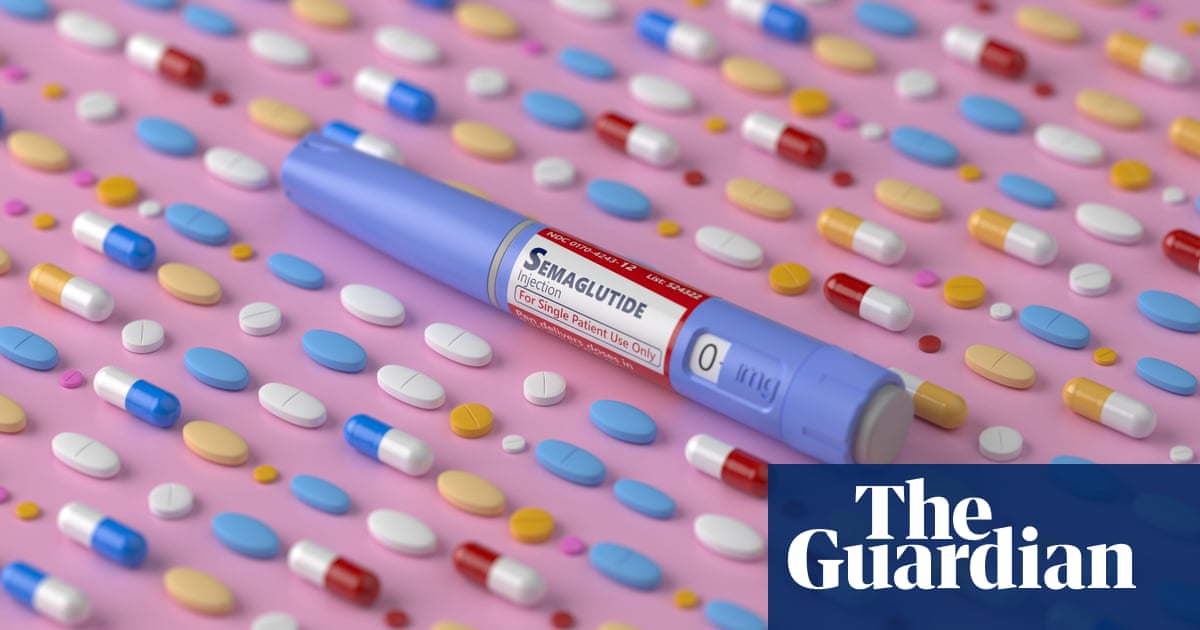Newly developed weight loss pills could have a big impact on tackling obesity and diabetes in low- and middle-income countries, experts have said.
Weight loss jabs such as Wegovy and Mounjaro, that contain the drugs semaglutide and tirzepatide respectively, have become popular in countries including the UK after trials showed they can help people losemore than 10% of their body weight. Medications containing semaglutide and tirzepatide can also be used to help control diabetes.
However, such jabs are not cheap, require an injection pen and needles, and must be kept refrigerated, limiting their use in low- and middle-income countries (LMICs).
Experts say new oral medications that are expected to be cheaper as well as simpler to transport and store could help tackle a growing health concern in such regions.
“Medicines that could lower diabetes risks and simultaneously reduce risks for heart disease and other obesity-related complications could have sizeable benefits in many LMICs where such disease are starting to escalate fast in part due to rising waist girths,” said Naveed Sattar, a professor of cardiometabolic medicine at the University of Glasgow.
Dr Louis Aronne, an expert in obesity medicine at Weill Cornell Medical College, agreed. “What we’re going to see is that as we move forward, patients and healthcare providers aren’t going to wait for people to develop [complications of obesity] when they can prevent them,” he said.
Aronne’s work has shown that when people with obesity and pre-diabetes were given tirzepatide for three years, their risk of developing diabetesfell by more than 90%.
“An oral medicine is easier to distribute since it wouldn’t need a cold chain to ensure sterility and activity like the current injectables. It would come in a box or bottle and wouldn’t need refrigeration, so could be used anywhere,” Aronne said.
Among the drugs causing excitement isorforglipron, which comes as a daily pill for glucose control and weight loss. Like semaglutide, orforglipron mimics a hormone in the body called GLP-1, helping people to feel fuller for longer as well as increasing insulin production, among other actions.
According to the pharmaceutical firm Eli Lilly, a 40-week phase 3clinical trialof orforglipron in people with diabetes found the medication reduced blood sugar levels and helped patients shed pounds. Aronne noted that it had a weight loss efficacy in the range of semaglutide.
While semaglutide is already available in pill form, orforglipron has further advantages. Sattar said a much higher dose of semaglutide was required in pill form than is used in jabs to achieve a near similar degree of weight loss, and semaglutide must be taken on an empty stomach and food should not be eaten for half an hour afterwards.
Orforglipron is a small molecule, meaning it is more resistant than semaglutide, a peptide, to being digested in the stomach, and so can be taken alongside food and drink. What’s more, orforglipron is unlikely to require as high a dose as oral semaglutide, potentially making it cheaper.
Experts say research is ongoing to test orforglipron for weight loss in people without diabetes and to confirm its safety profile – an important step, not least as Pfizerrecently ditchedits small molecule GLP-1 drug over a potential drug-induced liver injury.
It is also unclear if orforglipron is associated with a reduced risk of heart attack, stroke or death due to cardiovascular disease, as has beenfound for semaglutide.
But scientists say that if orforglipron and similar drugs in development reach the market, they could aid efforts to tackle obesity and diabetes, including in LMICs where the prevalence of such conditions isrising rapidly.
Aronne said: “Better food supply and better diet is definitely something that can prevent obesity, but once it’s established, a better diet is not going to treat the majority of people. Something physical changes in the brain that makes it hard for people to lose weight and to comply with the diet, and that’s why medication appears to be necessary in this situation.”
Such efforts are also important given the relationship between ethnicity and obesity-related diseases. “As shown by us and others, south Asians and blacks – and likely other ethnic groups – are more likely to develop type 2 diabetes at lower weight gains thanwhites across all ages, so that even small population-wide gains in obesity in many countries will lead to large rises in diabetes,” Aronne said, adding there was evensome trial evidencethat drugs that mimic GLP-1 may lower risks of heart disease by almost twice as much in Asian people than in white people.
Sattar said: “The more safe and effective weight loss medicines on the market, both injectable and especially oral, to help tackle rising girths, the better the health of many nations.”
